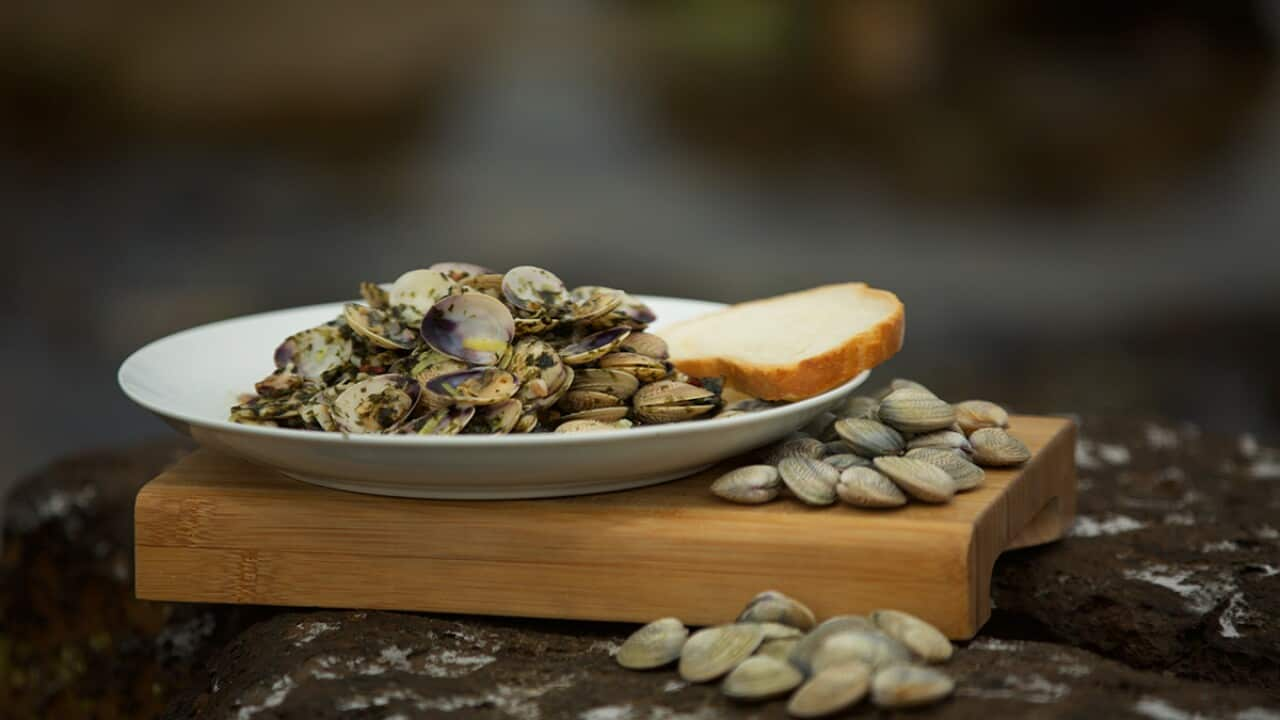Eating is a 'when in Wales' melt-in-your-mouth moment. The Welsh fare is usually served for afternoon tea, but what exactly are Welsh cakes, which are traditionally called picau ar y maen?
Think of the Welsh cake as a cousin of the English scone. Although both round in shape, a Welsh cake is flatter; it's usually up to 8 centimetres in diameter and about 1 centimetre thick. Like the scone, it includes flour, butter or lard, dried fruits, milk, eggs and spices like nutmeg. It's sometimes dusted off with caster sugar. A healthy snack it is not but consider it a Welsh staple.
WELSH CAKES RECIPE

Welsh cakes
These cakes have been eaten widely in Wales since the late nineteenth century. Welsh cakes are also called 'bakestones' since they're traditionally cooked on a bake stone – a type of griddle – and cooked over an open fire. According to the , they're also known as other Welsh names for bakestone, including tishan lechwan and tishan ar y mân. These days, Welsh cakes are typically baked in the oven or cooked in a pan.
Once cooked, they can be eaten hot or cold as is, unlike their English counterparts which are usually eaten with a spread of jam and cream or butter.
Sometimes the simplest of treats can be the most nourishing for the soul. First-generation Australian Jane Hacker tells SBS Food that she bakes Welsh cakes at home in Perth to recall fond memories of her family's Welsh hometown of Swansea.
"The smell of freshly baked Welsh cakes reminds me of walking through the Swansea Christmas markets and being handed a warm paper bag of fluffy, buttery joy and trying not to eat them all before I got home," Hacker says.
The smell of freshly baked Welsh cakes reminds me of walking through the Swansea Christmas markets and being handed a warm paper bag of fluffy, buttery joy.
Even though Welsh cakes aren't a traditional Christmas snack, Hacker says she likes cooking them on a cast-iron baking stone to celebrate festive times.
"We always bake Welsh cakes at Christmas time to bring a little taste of Wales to our Aussie Christmas and on St David's Day."
St David's Day, held on 1 March each year, is a celebration of Wales' patron saint. To commemorate the day, the Welsh traditionally wear the national emblems; a daffodil and a leek. They also hold parades and eisteddfodau (arts festivals).
WELSH FARE

Glamorgan sausages with watercress salad
When it comes to feasting, locals typically prepare Welsh fare, including bara brith (fruit loaf), cawl (meat and vegetable soup), glamorgan sausages (vegetarian sausages) and of course, Welsh cakes. Because, when in Wales.




